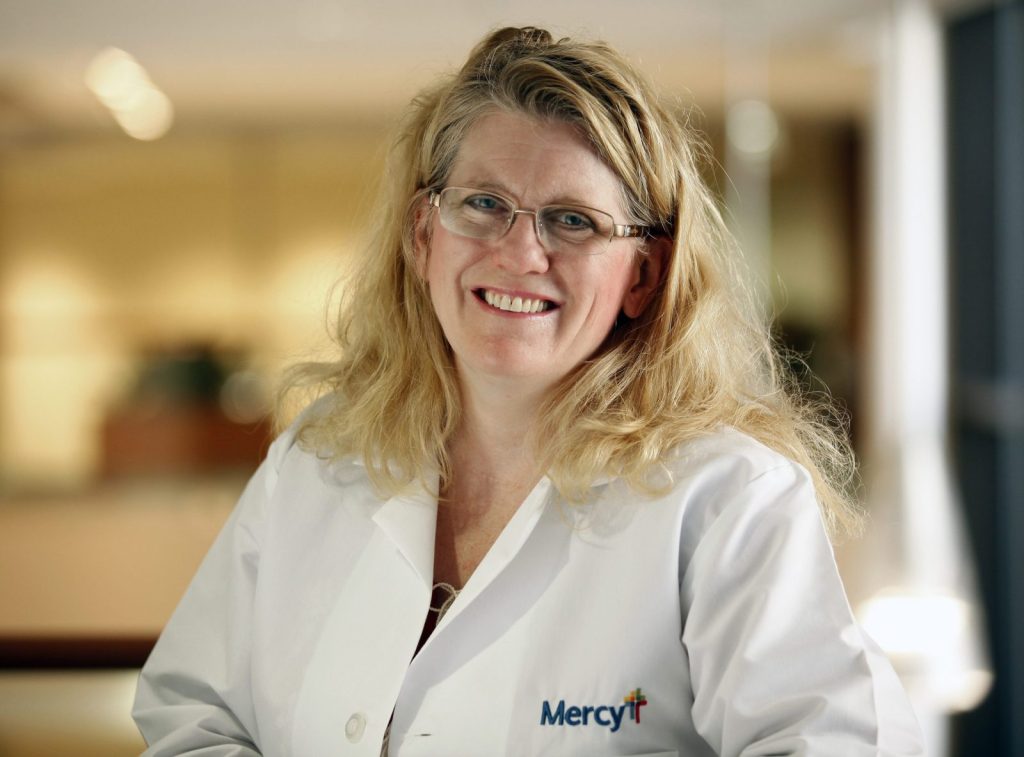Following a frightening national trend, Springfield doctors are seeing an increase in cases of respiratory syncytial virus, more commonly known as RSV, in babies and young children.
Dr. Diane Lipscomb, a pediatric intensivist at Mercy Springfield, said the “intense” RSV strain going around right now is affecting older kids, which is not the norm.
This week, Mercy Hospital closed its Neonatal Intensive Care Unit (NICU) to sibling visits due to the virus. Parents can come in, but siblings can’t, said Mercy spokesperson Sonya Kullman. CoxHealth is continuing its policy to not allow any visitors under the age of 15 in its NICU.
According to the Centers for Disease Control and Prevention, RSV is a common respiratory virus that usually causes mild, cold-like symptoms. Most people recover in a week or two, but RSV can be serious, especially for infants and older adults.
RSV is the most common cause of bronchiolitis (inflammation of the small airways in the lung) and pneumonia (infection of the lungs) in children younger than 1 year of age in the United States, the CDC website says.
RSV strain affecting older kids, too
“Typically, RSV tends to affect the littlest of our patients, the youngest children and those that have been born early,” Lipscomb said. “It’s always been probably one of the number one viruses that causes children to need to be admitted to the hospital.

“This year we are definitely seeing more numbers of RSV that are coming in and needing to be admitted,” she said. “We are seeing a very intense virus affecting even the older children and making them sick enough they need admission to the hospital, in particular to the ICU.”
Lipscomb said almost all babies and young children are infected with RSV at some point, but many develop mild symptoms which look like a cold and are never tested for RSV.
A spokesperson for Cox said staff has been diagnosing about 10 to 12 RSV cases per week at its Urgent Cares and Emergency Departments in Springfield, which is higher than the average for a typical October.
RSV cases fell in recent years when the pandemic caused schools and day care centers to shut down. Cases began climbing again in 2021 as COVID restrictions eased.
Hospitals across country worry about surge
Several national news outlets are reporting that doctors throughout the country worry that RSV cases, combined with flu and COVID-19 cases, could once again overwhelm hospitals.
Among U.S. kids under age 5, RSV typically leads to 58,000 hospitalizations and up to 500 deaths in a year, the Associated Press reported.
For adults 65 and older, RSV causes 177,000 hospitalizations and 14,000 deaths yearly.
Lipscomb urges parents of babies, especially those born early, to be wary of this virus — avoid having them in public or letting people get too close.
“When you see little babies, just don’t touch them right now,” Lipscomb said. “This is the time of the year you want to keep your distance.
“Stay your distance because the viruses this year are really wreaking havoc on children, which then wreaks havoc on the families, too, because they have to be here to help take care of those children in the hospital,” she said. “The best way to help take care of it is minimize exposure. If you are sick, wear a mask. It’s something that truly helps prevent RSV spread. Wear a mask.”
If your child gets sick with RSV, Lipscomb said to monitor symptoms closely. If the child gets a high fever, has a hard time breathing or has trouble eating or drinking, Lipscomb said it’s time to go to the doctor.
Symptoms of RSV, how to take care
The following information is from cdc.gov/rsv/:
People infected with RSV usually show symptoms within 4 to 6 days after getting infected. Symptoms of RSV infection usually include
- Runny nose
- Decrease in appetite
- Coughing
- Sneezing
- Fever
- Wheezing
These symptoms usually appear in stages and not all at once. In very young infants with RSV, the only symptoms may be irritability, decreased activity, and breathing difficulties.
Almost all children will have had an RSV infection by their second birthday.
Most RSV infections go away on their own in a week or two.
There is no specific treatment for RSV infection, though researchers are working to develop vaccines and antivirals (medicines that fight viruses).
Manage fever and pain with over-the-counter fever reducers and pain relievers, such as acetaminophen or ibuprofen. (Never give aspirin to children.)
Drink enough fluids. It is important for people with RSV infection to drink enough fluids to prevent dehydration (loss of body fluids).
Talk to your healthcare provider before giving your child nonprescription cold medicines. Some medicines contain ingredients that are not good for children.

